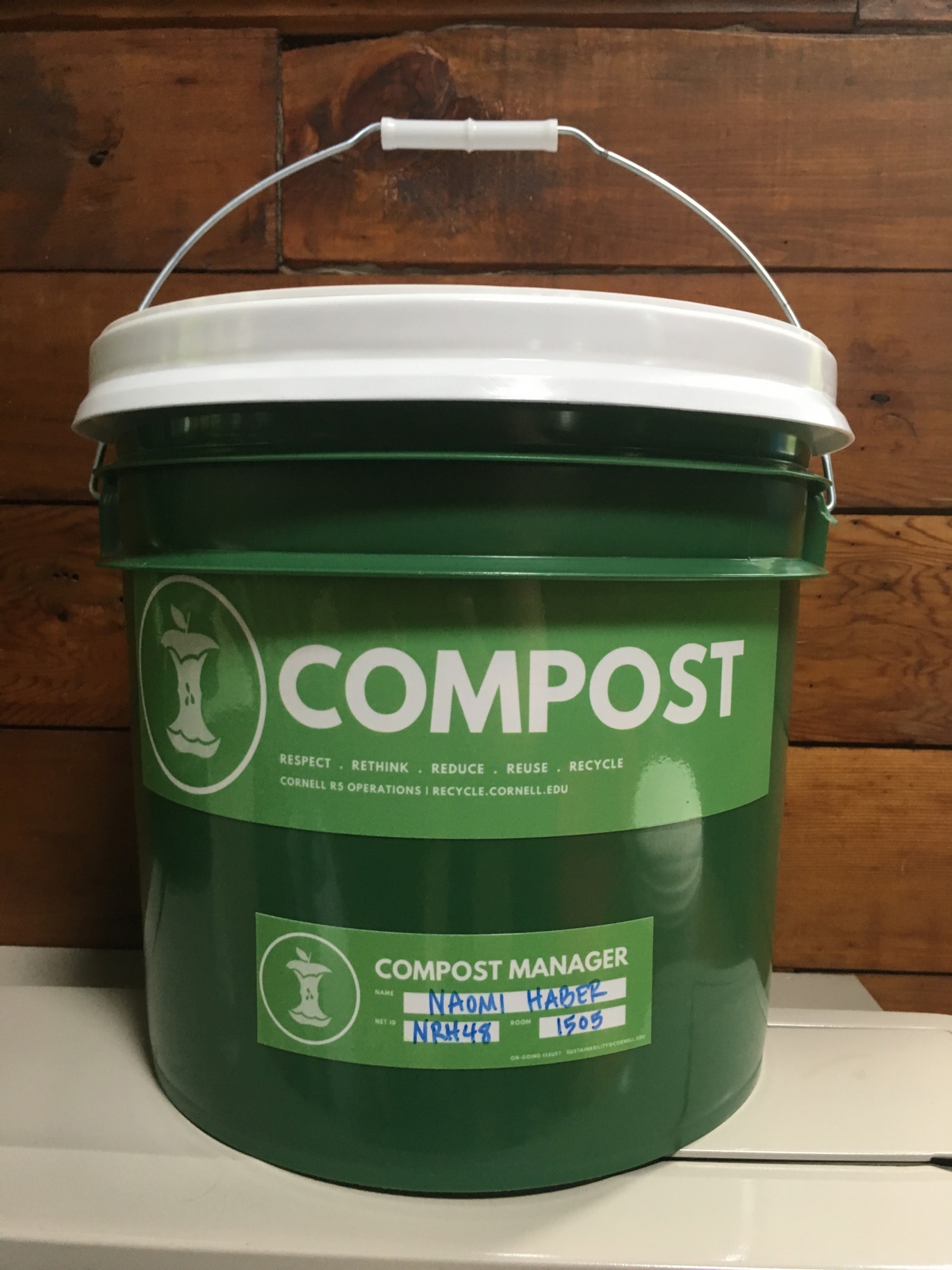
After a brief delay due the campus change to COVID Alert Yellow Level early in the Fall 2021 semester, the full Residential Compost Program will return to campus this weekend.
The program harnesses volunteers in all residential communities on campus to create a peer education program focused on compost collection, education, and management. Compost managers increase campus composting rates by making compost accessible where people live, usually in kitchen collection areas within residential communities.
The program was paused in March 2020 due to the pandemic. A modified version was launched in spring 2021 to enable students to manage their own personal compost after taking a brief online course.
That course has now been modified to serve as an educational certification tool. Anyone interested in composting on campus is encouraged to take the course to understand how to compost correctly.
So far, over 75 students have registered to support the program this Fall. Students can still sign up to become a compost manager through Friday, September 24th and must attend one of two virtual trainings the following day.
In a recent campus survey, 9 in 10 incoming Cornell students were "moderately, very, or extremely” concerned about the state of the natural environment. these students will be leading a tangible sustainability initiative within their residential community, and will enable their peers to get engaged as well. Students may also join Cornell Compost, a student organization formed in 2019 by current & former Compost Managers, dedicated to supporting all composting on campus through education, outreach, and action.
Residential compost program turns food waste into useful compost
During the first two years of the program, compost managers sent over 20,000 lbs (10 tons) of food scraps and napkins to Cornell’s on-site compost facility, diverting it from the landfill where it would have been destined to breakdown slowly and release greenhouse gases.
Compost collected through the program is picked up by Cornell Farm Services, processed, and redistributed in landscapes and gardens on campus. Students are supplied with kitchen compost buckets, cleaning supplies, and signage.
Growing the program
This year, the initiative makes compost accessible in 29 on-campus buildings – including communities on North Campus, West Campus, Collegetown, Graduate Housing, co-ops, and Greek Life. Involved students represent every college and class year at Cornell, including graduate and undergraduate students.
Students from Cornell's newest residential communities, including Ganędagǫ: Hall, Toni Morrison Hall, and the Veterans House, are signed up to participate.
This program is managed by the Campus Sustainability Office and directly supported by the R5 Sustainability Coordinator, a student staff position within the office. The program is a collaboration between the Campus Sustainability Office, R5 Operations, Cornell Farm Services, Student & Campus Life Facilities, Housing & Residential Life, West Campus House System, Off-Campus & Cooperative Living, Building Care, Office of Sorority and Fraternity Life, Cornell Dining, and Cornell Compost.
For more information, check out Cornell’s food waste and composting initiatives.

